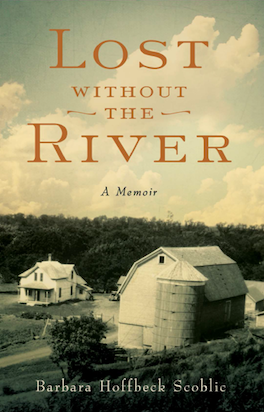Jason Graff is a widely published writer of essays, poetry and fiction, as well as a Pushcart Prize nominee. His work has been featured in journals, such as: The Write Launch, Per Contra, Carrier Pigeon Magazine, Shadowgraph Quarterly, The Ignatian and many others. His novel Stray Our Pieces has just been published by Waldorf Press and his novella, In the Service of the Boyar, is out now from Vagabondage Press. He is also the humorscope writer at blueplanetjournal.com and lives in Richardson, Texas with his wife and son.
Jason Graff interviewed by Sandra Fluck
In your recently published novel Stray Our Pieces, Gloria Hytner takes on various roles: wife, mother, daughter, and lapsed law student. When did you first see Gloria? What did you understand about her? Did she change as you wrote her?
Like most of my characters, I first saw Gloria inside myself. My professional life had not turned out quite how I hoped and that sense of disappointment seemed a good emotion to harness. As she developed over the course of many, many drafts, I began to recognize how much more fraught the road to fulfillment is for a woman like Gloria – for any woman really. I tried to use these institutional or societal impediments as a way to create the driving tension in the novel as that between how a woman is meant to be seen and how she sees herself.
The subordinate characters lend insight into Gloria’s character, but they are memorable because of their individual depth. Who are they, and when did you understand how significant they were in developing Gloria?
I think each of the characters at his or her core reflects something about Gloria that she’d forgotten about herself or tried to ignore. I really tried to use their reactions and interactions with her as a way for the reader to understand Gloria more than she understands herself.
Stray Our Pieces is an unusual title. What is its origin and how should readers understand it?
Once I finished the first draft, I realized I didn’t have a title. In search of inspiration I put on the album The Madcap Laughs by Syd Barrett. And there in the middle of “Love You,” one of the loveliest and most idiosyncratic tracks, was my title. I take it to mean that we leave bits of our past around, embedded most often in other’s perceptions of us, which is frustrating because oftentimes people’s idea of us is based more on who we were rather than who we are.
What makes Stray Our Pieces a novel that resonates with our cultural moment?
I think we live in a time of bullies, monsters and unfulfilled expectations. I think society needs to make some drastic changes if we’re all to survive and find a measure of peace about not just our individual place in this world but in mankind’s role as a whole.
Describe your writing process as you worked on Stray Our Pieces. How long did it take you from beginning to publication? Would you change anything about the process?
I wrote the rough draft in about three months during the summer of 2014. So, I guess I wished I’d made more time and been more focused during the editing of it. I also wished I hadn’t stopped shopping it, which I did during a time when I lost faith in the project.
Before you published Stray Our Pieces, what other work had you published? Work that is still in your desk drawer or file cabinet?
I published numerous short stories and a novella In the Service of the Boyar (aka The White Wolf’s Secret). I have three novels in various states of completion that I may or may not go back to. I also have a book heckler coming out in January 2020. I’m so excited to get that out into the world!
Have you ever changed your perception of “a writer”?
I think when it comes to novels, you are a writer for a very brief time and an editor much longer.
What kind of reader were you when you were a child? What were your favorite books?
I wasn’t a great reader. I liked your own adventure books more than anything. I remember reading Great Expectations when I was in middle school and being aware that it was the kind of book I should be reading. But I was lazy and more into sports than literature.
What books would you recommend to those who want to write but are hesitant to take the first step?
Nabokov was a huge inspiration for me at a crucial time in my life, when I was trying to figure out what to do. I found his writing so intoxicating and accessible. Ada, Lolita, Bend Sinister, Pale Fire, Transparent Things, Speak, Memory, really anything by him, you can’t go wrong. I don’t think I’ll ever get to his level artistically, but the inspiration I took from his work has stayed with me.
Which authors have influenced you in your own writing?
See above. But also: Anita Brookner, Iris Murdoch, Edward P. Jones, Doris Lessing, Ralph Ellison, Virginia Woolf, Michel Houellebecq, Jean Genet, AL Kennedy, Alex Haley, Gerrard Woodward, John Banville.
That’s a baker’s dozen. So, I’ll stop there, but I could go on.
That’s a baker’s dozen. So, I’ll stop there, but I could go on.
You are going to give a talk to high school students who want to be writers. What do you tell them?
Read widely from as diverse a group of writers as possible and know why you like the books you like and why you don’t like the books you don’t like. Once you’ve figured that out, read some more.





